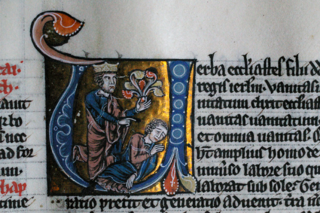
Ecclesiastes 1 is the first chapter of the Book of Ecclesiastes in the Hebrew Bible or the Old Testament of the Christian Bible. The book contains philosophical speeches by a character called Qoheleth composed probably between the 5th and 2nd centuries BC. Peshitta, Targum, and Talmud, as well as most Jewish and Christian readership, attribute the authorship of the book to King Solomon. This chapter contains the title of the book, the exposition of some fundamental observations and the problem of life, especially the failure of wisdom.

Ecclesiastes 3 is the third chapter of the Book of Ecclesiastes in the Hebrew Bible or the Old Testament of the Christian Bible. The book contains philosophical speeches by a character called 'Qoheleth', composed probably between the fifth and second centuries BC. Peshitta, Targum, and Talmud attribute the authorship of the book to King Solomon.
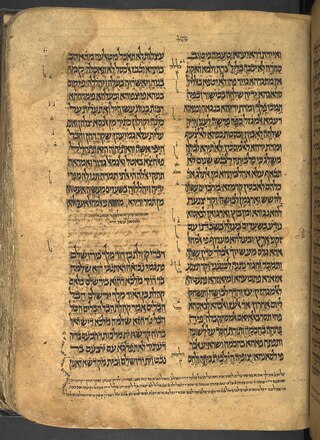
Ecclesiastes 2 is the second chapter of the Book of Ecclesiastes in the Hebrew Bible or the Old Testament of the Christian Bible. The book contains philosophical speeches by a character called Qoheleth, composed probably between the 5th and 2nd centuries BCE. Peshitta, Targum, and Talmud attribute the authorship of the book to King Solomon.

Ecclesiastes 5 is the fifth chapter of the Book of Ecclesiastes in the Hebrew Bible or the Old Testament of the Christian Bible. The book contains philosophical speeches by a character called '(the) Qoheleth', composed probably between the fifth and second centuries BCE. Peshitta, Targum, and Talmud attribute the authorship of the book to King Solomon. This chapter contains advice on how to approach God the right way, and a discussion about poverty and wealth.

Ecclesiastes 6 is the sixth chapter of the Book of Ecclesiastes in the Hebrew Bible or the Old Testament of the Christian Bible. The book contains philosophical speeches by a character called '(the) Qoheleth', composed probably between the 5th and 2nd centuries BC. Peshitta, Targum, and Talmud attribute the authorship of the book to King Solomon. This chapter deals with wealth and insatiability.

Ecclesiastes 7 is the seventh chapter of the Book of Ecclesiastes in the Hebrew Bible or the Old Testament of the Christian Bible. The book contains philosophical speeches by a character called '(the) Qoheleth', composed probably between the 5th and 2nd centuries BC. Peshitta, Targum, and Talmud attribute the authorship of the book to King Solomon.

Ecclesiastes 8 is the eighth chapter of the Book of Ecclesiastes in the Hebrew Bible or the Old Testament of the Christian Bible. The book contains philosophical speeches by a character called '(the) Qoheleth', composed probably between the 5th and 2nd centuries BCE. Peshitta, Targum, and Talmud attribute the authorship of the book to King Solomon. This chapter concerns human and divine authority with the advice that fearing God is the wisest course.
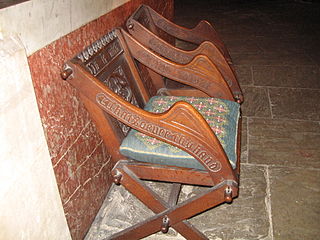
Ecclesiastes 9 is the ninth chapter of the Book of Ecclesiastes in the Hebrew Bible or the Old Testament of the Christian Bible. The book contains the philosophical and theological reflections of a character known as Qoheleth, a title literally meaning "the assembler" but traditionally translated as "the Teacher" or "The Preacher". The identity of Qoheleth it unknown. In traditional Jewish texts such as the Peshitta, Targum, and Talmud, authorship of Ecclesiastes is attributed to King Solomon, due to the statement in Ecclesiastes 1:1 which identifies Qoheleth as the "son of David, king in Jerusalem". However, it is generally agreed upon by contemporary scholars that the book could not have been written in the 10th century during the time of Solomon. It is now thought to be one of the latest books in the Old Testament to be written, likely sometime between the 5th and 3rd centuries BCE.

Ecclesiastes 10 is the tenth chapter of the Book of Ecclesiastes in the Hebrew Bible or the Old Testament of the Christian Bible. The book contains philosophical speeches by a character called '(the) Qoheleth', composed probably between the 5th and 2nd centuries BCE. Peshitta, Targum, and Talmud attribute the authorship of the book to King Solomon. This chapter focuses on foolishness in persons, in high places, in action, in words and even in national life.

Ecclesiastes 11 is the eleventh chapter of the Book of Ecclesiastes in the Hebrew Bible or the Old Testament of the Christian Bible. The book contains philosophical speeches by a character called '(the) Qoheleth', composed probably between the 5th and 2nd centuries BCE. Peshitta, Targum, and Talmud attribute the authorship of the book to King Solomon. Michael Eaton notes that this chapter and the next are characterized by the encouragement to make decision and the need to act speedily.
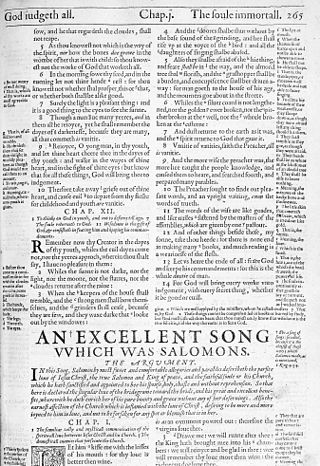
Ecclesiastes 12 is the twelfth chapter of the Book of Ecclesiastes in the Hebrew Bible or the Old Testament of the Christian Bible. The book contains philosophical speeches by a character called 'Qoheleth', composed probably between the 5th and 2nd centuries BCE. Peshitta, Targum, and Talmud attribute the authorship of the book to King Solomon. This chapter continues the previous one in the sustained encouragement to make decision and the need to act speedily.

Proverbs 30 is the 30th chapter of the Book of Proverbs in the Hebrew Bible or the Old Testament of the Christian Bible. The book is a compilation of several wisdom literature collections: the heading in Proverbs 1:1 may be intended to regard Solomon as the traditional author of the whole book, but the dates of the individual collections are difficult to determine, and the book probably obtained its final shape in the post-exilic period. This chapter first records "the sayings of Agur", followed by a collection of epigrams and aphorisms.

Esther 10 is the tenth chapter of the Book of Esther in the Hebrew Bible or the Old Testament of the Christian Bible, The author of the book is unknown and modern scholars have established that the final stage of the Hebrew text would have been formed by the second century BCE. Chapters 9 and 10 contain the resolution of the stories in the book. This brief chapter is an encomium to Mordecai, showing his power alongside that of the king, being a Jew as second in command to a Gentile king, serving the interests of both groups, Persians and Jews. It is a picture of an 'ideal diaspora situation' and 'serves as a model for all diaspora communities'.

Proverbs 25 is the 25th chapter of the Book of Proverbs in the Hebrew Bible or the Old Testament of the Christian Bible. The book is a compilation of several wisdom literature collections, with the heading in Proverbs 1:1 may be intended to regard Solomon as the traditional author of the whole book, but the dates of the individual collections are difficult to determine, and the book probably obtained its final shape in the post-exilic period. This chapter is the last part of the fifth collection of the book, so-called "the Second Solomonic Collection."

Proverbs 26 is the 26th chapter of the Book of Proverbs in the Hebrew Bible or the Old Testament of the Christian Bible. The book is a compilation of several wisdom literature collections, with the heading in 1:1 may be intended to regard Solomon as the traditional author of the whole book, but the dates of the individual collections are difficult to determine, and the book probably obtained its final shape in the post-exilic period. This chapter is the last part of the fifth collection of the book, so-called "the Second Solomonic Collection."

Proverbs 27 is the 27th chapter of the Book of Proverbs in the Hebrew Bible or the Old Testament of the Christian Bible. The book is a compilation of several wisdom literature collections, with the heading in 1:1 may be intended to regard Solomon as the traditional author of the whole book, but the dates of the individual collections are difficult to determine, and the book probably obtained its final shape in the post-exilic period. This chapter is the last part of the fifth collection of the book, so-called "the Second Solomonic Collection."

Proverbs 29 is the 29th chapter of the Book of Proverbs in the Hebrew Bible or the Old Testament of the Christian Bible. The book is a compilation of several wisdom literature collections, with the heading in 1:1 may be intended to regard Solomon as the traditional author of the whole book, but the dates of the individual collections are difficult to determine, and the book probably obtained its final shape in the post-exilic period. This chapter is the last part of the fifth collection of the book, so-called "the Second Solomonic Collection."

Proverbs 21 is the 21st chapter of the Book of Proverbs in the Hebrew Bible or the Old Testament of the Christian Bible. The book is a compilation of several wisdom literature collections, with the heading in 1:1 may be intended to regard Solomon as the traditional author of the whole book, but the dates of the individual collections are difficult to determine, and the book probably obtained its final shape in the post-exilic period. This chapter records a part of the second collection of the book.
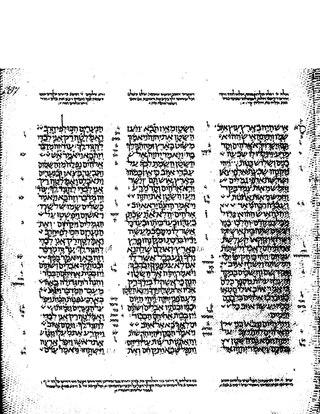
Job 10 is the tenth chapter of the Book of Job in the Hebrew Bible or the Old Testament of the Christian Bible. The book is anonymous; most scholars believe it was written around 6th century BCE. This chapter records the speech of Job, which belongs to the Dialogue section of the book, comprising Job 3:1–31:40.

Job 16 is the sixteenth chapter of the Book of Job in the Hebrew Bible or the Old Testament of the Christian Bible. The book is anonymous; most scholars believe it was written around 6th century BCE. This chapter records the speech of Job, which belongs to the Dialogue section of the book, comprising Job 3:1–31:40.















